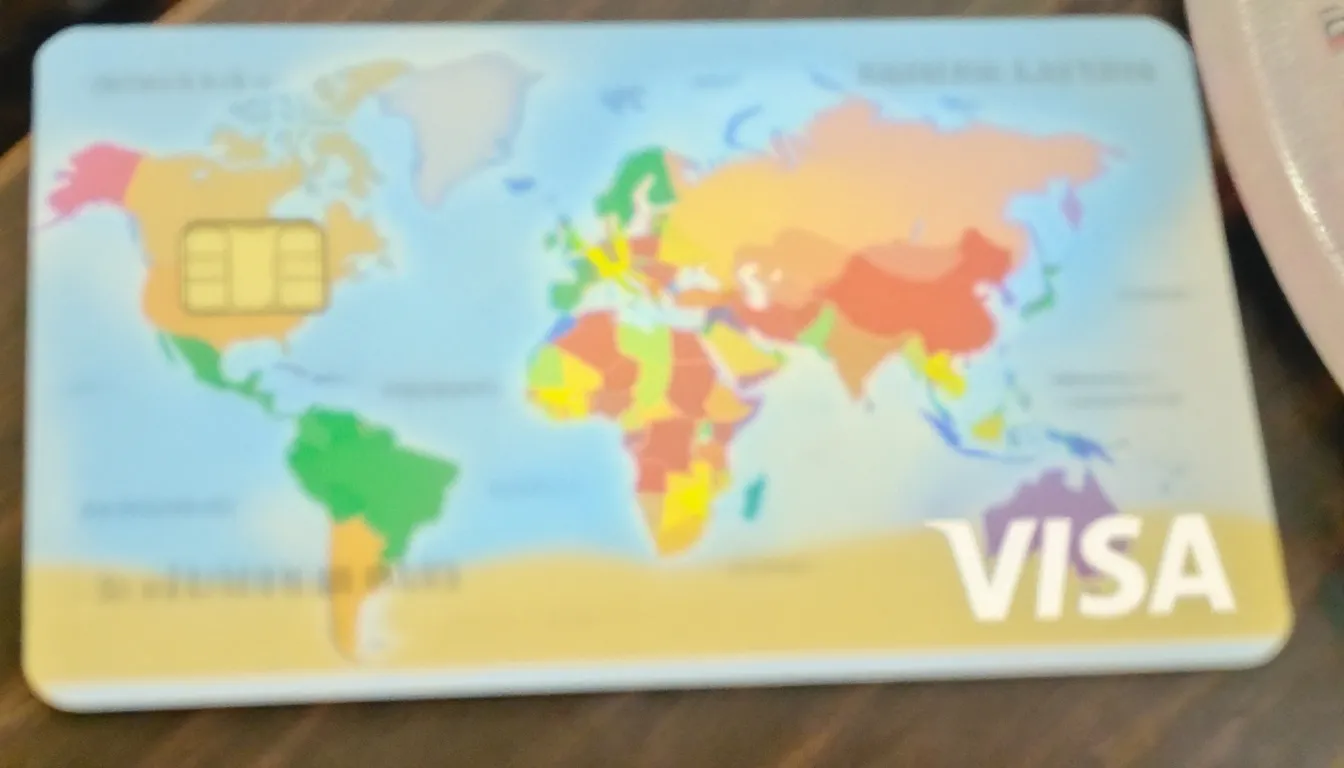Your 2025 Guide to Understanding the Cost of Living in Bali Indonesia

Wondering about the cost of living in Bali, Indonesia? On average, living costs for a single person range from $500 to $1,500 per month. This guide covers all essential expenses, including accommodation, food, and transport, so you can plan your budget effectively.
Key Takeaways
- Living in Bali is generally cheaper than in many Western countries, with monthly expenses ranging from $500 to $1,500 depending on lifestyle choices.
- Accommodation and food are the two biggest costs; renting starts at around $250, and local meals can be as cheap as $1.
- Transportation is affordable with scooter rentals ranging from $45 to $70, and local markets help keep grocery costs down.
Overview of Living Expenses in Bali

Living in Bali can be a dream come true, especially when you compare the bali cost to many Western countries. On average, a single person can expect to spend between $500 to $1,000 per month, although a comfortable budget would be around $1,500. This makes Bali an attractive option for those looking to stretch their dollars further. The overall cost of living in Bali is generally lower than in many Western nations, yet slightly higher than in Thailand.
Monthly budgets can vary greatly depending on lifestyle choices and personal spending habits. Factors such as location, accommodation type, and dining preferences can significantly influence your estimated monthly costs.
Whether you’re a backpacker on a tight budget or an expat seeking a more luxurious lifestyle, Bali offers a range of options to suit different needs and preferences.
Accommodation Costs
Accommodation is one of the most significant living expenses you’ll encounter in Bali. You can find a wide range of options, from simple homestays to luxurious villas. Monthly rentals for basic accommodations can start as low as $250 and go up to $900 or more, depending on the size, location, and amenities. The average rent for an apartment is around $500, but you can find cheaper options if you look in less touristy areas or negotiate with landlords.
Tourist hotspots like Seminyak, Kuta, and Ubud tend to have higher rental prices, while areas like Amed or Bedugul offer more affordable options. Renting a simple homestay can cost around $300 per month, making it a cost-effective option for budget-conscious individuals. On the other hand, if you’re looking for a 2-4 bedroom villa in prime areas, expect to pay between 30 million to 50 million IDR per month.
Most rental transactions in Bali operate on a cash basis, and negotiating your rental agreements can lead to significant discounts. Long-term rentals are generally cheaper than short-term ones, so if you plan to stay for an extended period, consider signing a long-term lease to save money.
Transportation Costs
Getting around Bali can be both affordable and convenient, especially if you opt for the most popular mode of transport: scooters. Basic scooter rentals typically cost between $45 and $70 per month, and a full tank of petrol will set you back just $3. This makes scooters a cost-effective option for daily commuting. If you prefer a car, the average monthly rental is around $200, but employing a full-time driver can push this cost up to $450.
Public transportation options are limited, but local methods like bemos (shared minivans) can help lower travel costs. Ride-hailing apps like Gojek and Grab are also popular and offer affordable rides starting as low as $1.
Building local connections can lead to better deals and discounts on car or scooter rental for those planning to stay long-term.
Food Expenses
Food is another significant yet variable expense in Bali. If you choose to eat like a local, you can save quite a bit. Meals at local warungs (small eateries) cost just a few dollars, with popular dishes like Nasi Goreng priced between $1 and $2. Dining at trendy cafes or Western restaurants will cost more, with meals ranging from $4.5 to $8. Fine dining experiences can be quite pricey, starting from $200 and going up significantly.
For those who prefer to cook their own food, groceries in Bali are relatively inexpensive compared to many Western countries. By shopping at local markets, you can buy fresh produce and basic necessities at lower prices, helping you stick to a reasonable food budget while enjoying local foods.
Budgeting carefully is crucial, especially if you prefer international food, which tends to be more expensive.
Health Insurance and Medical Costs
Healthcare is a crucial consideration for anyone planning to live in Bali, with health insurance often required for visa applications. The average monthly cost of health insurance ranges from $50 to $200, depending on factors like age, pre-existing conditions, and desired coverage. Travel insurance is not sufficient for long-term stays, so expats should look into expat or global health insurance plans.
Medical costs in Bali can vary, with some treatments being quite expensive. For example, rabies treatment can cost up to $2,500. Therefore, comprehensive health insurance that covers medical procedures and potential medivac is essential. Consulting with a health insurance expert or using a consultant like Asialife can help you find the best plan to suit your needs.
Entertainment and Leisure Activities
Bali offers a plethora of entertainment and leisure activities that can fit various budgets. Gym memberships, for example, start at around $35 per month, though prices can vary based on the quality of facilities and commitment length. Beach clubs are popular but can significantly increase your monthly entertainment expenses, with cocktails ranging from $5 to $9. Even a glass of below-average wine costs around $7, so it’s essential to budget for these extras.
Several recommended trips around and outside Bali, including Nusa Penida, Lombok, and Komodo National Park, offer enriching experiences. These excursions can add to your overall living expenses but offer enriching experiences that are worth every penny. Whether you prefer nightlife or nature, Bali has something for everyone.
Miscellaneous Monthly Costs
Miscellaneous expenses can add up quickly, so they should be accounted for in your budget. On average monthly expenses, these costs range from $100 to $300 per month. Common expenses include drinking water, sunscreen, toiletries, and laundry services. Sunscreen alone can cost around $10 per month, and if you live in a villa, you should also budget for utilities like air conditioning and pool maintenance.
Internet and mobile phone costs are relatively affordable. Monthly internet plans range from $20 to $50, while data plans for mobile services can be as low as $4.50 for 10-15 GB. If you require full-time domestic staff, expect to pay around $200 per month.
These are a few examples of additional costs you might encounter while living in Bali.
Visa Information for Bali

Living in Bali requires a visa, and there are several options to choose from depending on your needs. Foreigners can apply for tourist visas, business visas, or long-term stay permits like KITAS and KITAP.
The B211A business visa allows for a stay of up to 6 months and can be extended, making it a popular choice for those not looking to settle permanently. For long-term residents, a KITAS might be more suitable as it lasts up to 12 months, while a KITAP offers a more permanent solution with a validity of five years.
Visa Costs
The cost of obtaining a visa varies depending on the type. The B211A business visa is one of the more affordable options, with a fee of approximately $55. The initial cost for a 211 Visa is $330 USD, with monthly renewals costing $200 after the initial two months.
For those looking to stay longer, a KITAS visa costs $550 USD per year, making it a better investment for long-term stays.
Work Permits
If you plan to work or run a business in Bali, you’ll need a work permit. To obtain one, you must demonstrate that you have a skill that is not readily available in the local workforce. Domestic staff cannot be imported from other countries into Indonesia, so they will not be granted work permits.
For those looking to start a business or tourism purposes, a business visa and subsequent work permit are essential.
Education Costs in Bali

Education is a significant consideration for families moving to Bali. The island offers a range of schooling options, including international and local schools. International schools tend to be more expensive, with annual tuition fees ranging from $4,000 to $15,000. Local schools, on the other hand, are more affordable but follow the Indonesian national curriculum.
Families should also budget for additional expenses like uniforms and extracurricular activities.
International Schools
International schools in Bali primarily offer curricula in English and cater to the expatriate community. Established in 1985, Bali Island School is one of the most well-known international schools on the island. Parents typically spend around $2,000 per month on school costs here, making it a significant part of the overall budget for families. Compared to Thailand, Bali offers more schools with international curriculums, providing more options for expatriate families.
These schools often provide a higher standard of education and a more familiar environment for children from Western countries. However, the high tuition fees mean that parents need to budget carefully to cover these costs. Extracurricular activities and school uniforms are additional expenses that can add up quickly.
Local Schools
Local schools in Bali offer a more affordable alternative to international schools. These schools follow the Indonesian national curriculum, which differs significantly from the international standards many expats might be accustomed to. While the lower cost can be enticing, it’s crucial to consider whether the curriculum aligns with your child’s educational needs and future plans.
For families looking to integrate more deeply into the local community, local schools can be an excellent option.
Taxes and Legal Considerations

Navigating the tax landscape in Bali is essential for anyone planning to stay long-term. To become a tax resident in Indonesia, you must stay in the country for more than 183 days in a 12-month period or demonstrate an intent to reside there.
Once classified as a tax resident, you’re liable for tax on your global income, making it important to consult with tax professionals familiar with Indonesian laws to ensure compliance and optimize your tax obligations.
Indonesian Tax Residency
Expats who spend over 183 days in Indonesia within a year are considered tax residents and are subject to tax on their global income. This means that all earnings, whether generated in Indonesia or abroad, are liable for Indonesian taxes.
Seeking advice from an accounting professional is highly recommended to understand your tax obligations fully and avoid any legal issues.
Tax Rates and Compliance
Indonesia imposes progressive tax rates ranging from 5% to 35% on individual taxpayers, depending on their income levels. Non-residents face a flat tax rate of 20% on their Indonesian income. Compliance with local tax regulations is crucial to avoid penalties and legal complications.
Property taxes are also applicable, with annual rates reaching up to 0.3% of the property’s market value.
Comparing Bali to Other Countries

Comparing the cost of living and quality of life in Bali to other countries can help you make an informed decision about moving. Generally, the cost of living in Bali is more affordable compared to many Western nations.
However, it’s essential to consider lifestyle choices, as upscale dining, international schooling, and other luxury expenses can make living in Bali comparable to or even more expensive than in Western countries.
Cost of Living Comparison
Bali is slightly cheaper than Thailand, making it an attractive destination for budget-conscious expats. It’s also significantly cheaper than places like Zanzibar. The vibrant expatriate community in Bali enhances the quality of life, providing a social and supportive environment. Safety is another critical factor, with Bali generally being safer than some other popular expat destinations.
The island offers a laid-back lifestyle that appeals to many expats seeking a slower pace of life. Whether you’re looking for a tranquil retreat or a bustling social scene, Bali provides a range of living experiences that can be more affordable compared to Western countries.
Comparing the actual prices of daily necessities and services is crucial to get a clear picture of the cost of living.
Quality of Life
Quality of life in Bali is enhanced by its stunning natural beauty, including lush landscapes and beautiful beaches. The abundance of outdoor activities, from surfing to hiking, adds to the island’s appeal. Safety is a significant aspect, with lower crime rates compared to many Western countries, making it a family-friendly destination.
The sense of community in Bali is strong, with a mix of locals and expats actively participating in cultural events and social activities. This creates a welcoming environment that many find appealing.
When compared to other countries, Bali offers a unique quality of life characterized by its natural environment, safety standards, and community ethos. These factors make Bali an attractive destination for those seeking a balanced and fulfilling lifestyle in their home country.
Tips for Budgeting in Bali
Effectively managing your budget is crucial to making the most of your time in Bali. Understanding the cost of living and making informed choices will help you enjoy a comfortable lifestyle without breaking the bank.
From food to housing and transportation, there are several strategies to help you save money and stay within your budget.
Saving Money on Food
Eating local food is one of the best ways to save money in Bali. Local warungs offer delicious food at just a few dollars per meal, making it a cost-effective option for daily dining. Shopping at local markets for fresh produce and cooking at home can also help you stick to a reasonable food budget. This not only saves money but also allows you to experience traditional dishes and local flavors.
If you prefer international food, budgeting carefully is essential as these options can be more expensive. By balancing your diet with a mix of local and international foods, you can enjoy a diverse culinary experience while keeping your expenses in check.
Whether dining out or cooking at home, being mindful of your food choices can significantly impact your overall living expenses.
Affordable Housing Options
Finding affordable housing is key to managing your living expenses in Bali. Homestays and guesthouses are popular options for budget travelers, with monthly rents ranging from $300 to $500. These accommodations offer a cost-effective option for those looking to save money.
Negotiating with landlords, especially for longer stays, can lead to better rental agreements. Short stays tend to be more expensive, so consider long-term rentals to reduce costs.
Managing Transport Costs
Using a scooter is a common and economical choice for transportation in Bali. Renting a scooter typically costs between $50 and $70 per month, making it a cost-effective option for daily commuting. Public transportation options are limited but can provide affordable travel solutions for residents. Ride-hailing apps like Gojek and Grab offer convenient and budget-friendly alternatives, with rides starting as low as $1.
Local ride-sharing apps offer a more affordable transportation option for those who prefer not to drive. By using these services, you can save money on transportation while enjoying the convenience of getting around the island easily.
Whether you choose to rent a scooter or use ride-hailing apps, managing your transport costs effectively can contribute to a more budget-friendly lifestyle in Bali.
Summary
Living in Bali offers a unique blend of affordability, natural beauty, and a vibrant community. While the cost of living can vary greatly depending on lifestyle choices, it’s possible to enjoy a comfortable life on the island with careful budgeting. From affordable accommodation and food options to manageable transportation and entertainment costs, Bali provides a range of opportunities for expats and digital nomads. By understanding the various expenses and making informed decisions, you can make the most of your time on this beautiful island.
Frequently Asked Cost of Living in Bali Indonesia Questions
How much does it cost to live in Bali per month on average?
On average, living in Bali will cost you between $500 and $1,000 a month, but if you’re looking for a more comfortable lifestyle, budget around $1,500.
What types of visas are available for living in Bali?
To live in Bali, the main visa options are tourist visas, B211A business visas, and KITAS for long-term stays. Pick the one that fits your plans best!
How much does health insurance cost in Bali?
Health insurance in Bali typically costs between $50 and $200 a month, depending on what coverage you choose and your personal situation. Make sure to shop around for the best fit for your needs!
Are there international schools in Bali?
Absolutely, Bali has several international schools like Bali Island School, and tuition can run between $4,000 and $15,000 a year.
What are the tax obligations for expats in Bali?
If you’re in Bali for over 183 days, you’ll be seen as a tax resident and will need to pay taxes on your worldwide income at progressive rates. So, keep that in mind to avoid any surprises!

